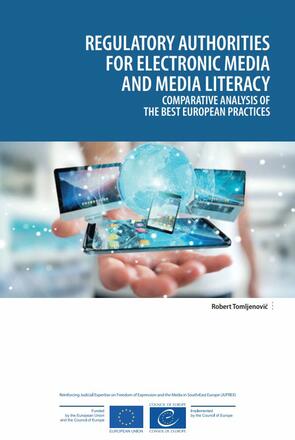Publication Date:
November 2018
Publisher:
Council of Europe
Research and Editorial Team:
Robert Tomljenović

Taking into account the challenges posed by “a digitalized, hypertechnological mediated world”, the author of this comparative study indicates the promotion of media literacy and the efficiency of regulators as central factors “for the democratization and the development of the critical discourse in a society”.
- In the introduction, the study underlines “insufficient knowledge of the concept of media literacy”, providing an exhaustive definition and emphasising its strategic role in affecting “the direction of the public discussion, scientific research, and initiatives, as well as the contents of policies, legal and other documents”.
- Then, after presenting the role played by international organisations and national media literacy policies across the continent, the study “showcases examples of the best European practices and regulatory bodies’ engagement on strengthening media literacy, alongside a special review and case study featuring the most successful European country in this particular field – Finland”; also, it addresses the Irish and Croatian cases, where new policies are fostering the development of good media literacy practices.
- Finally, an entire chapter of recommendations is dedicated to Serbia, where “there is no systematic approach that will enable long-term, sustainable media literacy projects”. In such a context, the study underlines how the “Serbian Regulatory Authority for Electronic Media (REM), should definitely take a more active role in working on media literacy, owing to its important social role and its complementarity with certain aspects of media content regulation and protection of minors and consumers, as well as the preventive approach to it all”.
The content of this article can be used according to the terms of Creative Commons: Attribution-NonCommercial 4.0 International (CC BY-NC 4.0) . To do so use the the wording "this article was originally published on the Resource Centre on Media Freedom in Europe" including a direct active link to the original article page.

